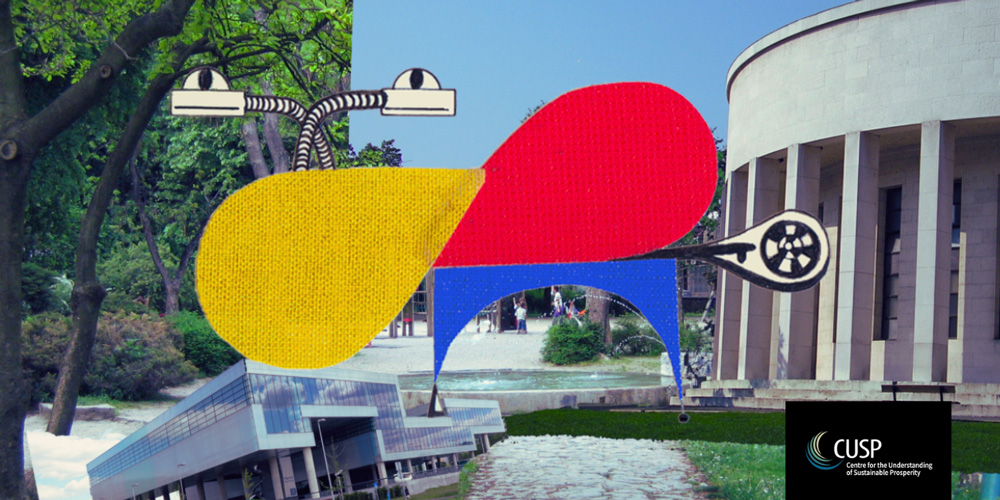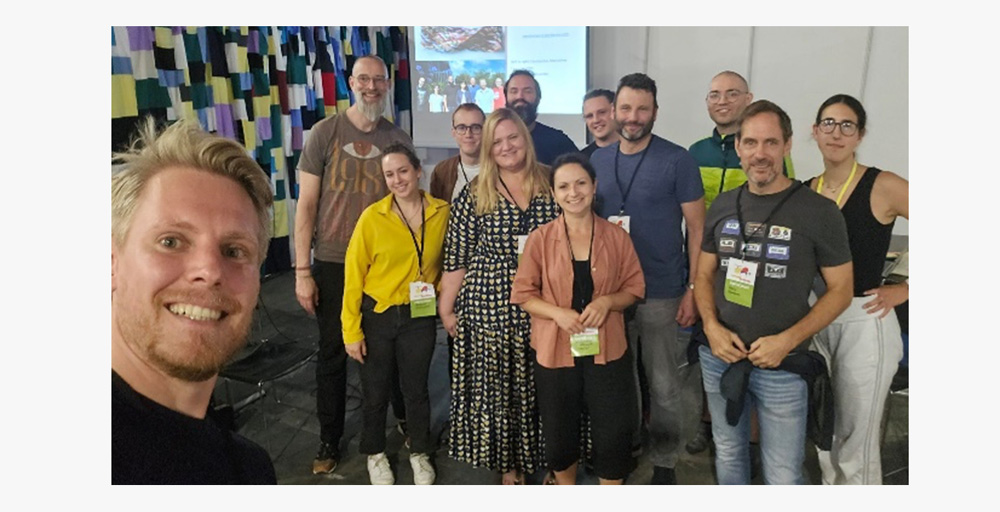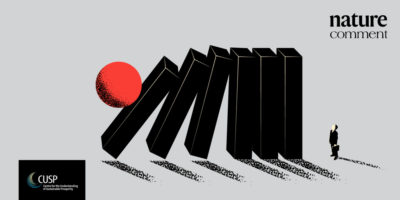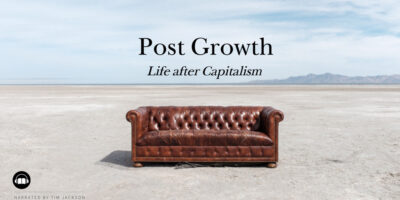Embracing the uncomfortable: raising degrowth to the next level
Following the 9th International Degrowth Conference in Zagreb, CUSP researchers Patrick Elf, Simon Mair, and their colleague James Scott Vandeventer reflect on the imperative for the degrowth movement to embrace uncomfortable challenges in engaging with business, management, and organizations to advance to the next level.
Blog by PATRICK ELF, SIMON MAIR and JAMES SCOTT VANDEVENTER

As part of the Management Educators Navigating Degrowth (MEND) collective, we attended the 9th International Degrowth Conference in Zagreb from 29th August to 3rd September. In the following, we provide a few reflections from our time in Zagreb.
. . .
Degrowth conferences are different! Is that because there are more people walking barefoot than there are people wearing business attire? Or because a large proportion of attendees take on the long journey to Zagreb via train rather than jumping on a short haul flight like it is common in most (academic) conferences?
While this is all true, it is perhaps much more because Degrowth conferences provide a rare space where on-the-ground activism meets policy-focused approaches. As Simon phrased it in a short LinkedIn commentary, “it is unusual to find a conference with activists and academics alongside one another, and for so much work to be so inspirational.”
Presentations covered a significant range of topics spanning ‘masculinity and degrowth’, ‘science and activism’, as well as links between degrowth and food, energy, grassroot initiatives, decolonial approaches, to name just a few, up to discussions on critical topics such as ‘How can degrowth actors engage in policy dialogue with growth-enhancing policy institutions?’.
From the MEND team, James Scott Vandeventer ran a workshop on ‘Advancing research on degrowth and post-growth organization’, and Simon Mair gave a presentation on ‘Using autoethnography to link value theory and degrowth activism’; before we delved into our joint workshop session on Day 2, discussing the Whys and the Hows of ‘Bringing degrowth into management education’.
A little over a dozen participants joined the workshop—which was great. But having run a similar workshop at the ICMS Conference in Nottingham earlier this year, we perhaps expected a few more people. Maybe management scholars are interested in degrowth but degrowth scholars not so much in management?
Somewhat contrary to the title of our workshop, we were not interested in providing ready-made answers. Instead, we followed our MEND principles to provide an open space for genuine conversation. After briefly introducing our work, approach and objectives, we had a quick round of introductions. The group consisted of practitioners and academics as well as a participant who works in policy.

We then offered four guiding questions and broke up in smaller groups to allow for deeper conversations. Although firmly grounded in questions of degrowth and post growth, conversations took some expected as well as unexpected turns. We discussed the role of emotions and resilience in discussing post growth and degrowth in (for-profit) business contexts, and the need to sit with the uncomfortable. Another conversation focused on which tools to use, wondering if there is scope to further develop existing means (like Climate Fresk) to have more critical perspectives on social change. Others spoke about how the word ‘degrowth’ itself might be better (or worse) suited to different audiences—something we have discussed in MEND when thinking about bringing degrowth into the classroom.
Following the workshop, amongst the MEND collective, we further reflected on one of the slogans emerging from an artist collaborating with the conference: Grow Up! Degrowth! (Some insightful workshop reflections from the Unternehmensdemokraten (EN: Business Democrats) can be found on their website, in the German original, and here for an English version on LinkedIn). There is certainly so much good, fascinating and equally inspiring work happening across the community. But there is also a sense that degrowth is (too?) often discussed on an too abstract level. Or, it remains on a niche level with activists trying to forge their way into the policy realm. And while a number of the presentations have business and management implications, connecting with management and organisation research remains marginal, at best.
This is not surprising. Many degrowth activists and academics are deeply critical of capitalism (with some even advocating for an exit from the economy altogether; e.g. Bartolini, 2018), and what is private business if not a core driver of capitalist growth? The same is true of the capitalist state, and again this is often (but not always) rejected by degrowthers in favour of anarchist organising principles. This may also help explain why most degrowth research and activism focuses on so-called ‘commons organisations’. Our perspective is a little different, but still engages with the urgency echoed in calls for degrowth.
As a collective, MEND has a diversity of views, and some of us share a deep scepticism of the possibility for capitalism to overcome ecological and social crises. However, we also believe it is a mistake to write off ‘business’ as a monolith. Profit-maximising fossil fuel companies will not change (see e.g. AlJazeera for a recent commentary by Christiana Figueres). But other for-profit businesses might. There are multiple ways to organise production, from the commons organisations that avoid state and market altogether, to the profit maximising corporates, to many others. By writing off all ‘business’, degrowth may risk falling into the trap of ‘capitalocentrism’: seeing capitalism everywhere until it becomes insurmountable.
Moreover, in our daily roles as educators, teaching (business) students in universities, and as researchers, often working with businesses, we see potential for change. At the end of the day, businesses consist of people organised (and organising) for specific purposes. Indeed, in the market societies of the so-called Global North, where degrowth is most prominent as a social movement, most people depend on business for their livelihoods. These people are working within specific, imperfect, constraints. But many of them are people with the desire and capacity to make and influence some kind of change. Degrowth should not write these people off; rather, we need to work with people to develop meaningful change.
But—of course—change is difficult. Even just bringing degrowth into the classroom is a challenge—one of the main reasons why we founded MEND in the first place. Bringing postgrowth thinking into the business conversation is hard, as well—yet still, why we engage with business practitioners at conferences and through our work. There are big conceptual and practical challenges here. Much degrowth work (including some done by our members!) is still rather abstract and not applicable to many organisations, let alone to for-profit businesses. The flip-side of this is that there is little interest from the business world or business schools to engage with questions of post growth and degrowth. So, a practical challenge is to make connections, to think through how degrowth engages with for-profit business. Conceptually, there is the challenge posed by the degrowth critique of capitalism: if the problem is structural and if for-profit business is dependent on growth, how do you make meaningful changes within these organisations? Degrowth by its nature means going beyond energy efficiency, carbon reductions and/or biodiversity offsets. Is it possible to engage businesses to rethink their purpose and form, pushing them towards decommodified, slower, and less growth reliant practices?
Whatever the path forward, what is clear is that time is ticking, and we must accept the difficult and fraught task of engaging with businesses and organisations.
For us, ‘growing up’ means doing the uncomfortable. We could probably all have better paid jobs and ‘easier lives’ (whatever that means). The Degrowth movement will need to continue doing what it is doing already, cementing the evidence base and commitment to change. And it will need to find its way into business, management, and organisations. Not a coopted or watered-down version but the real, most likely uncomfortable version that we discussed during our workshop, and which we will continue to discuss and nurture. One that might just make a difference.



